can birds eat hamster food
Understanding the dietary needs of our feathered friends is crucial for their health and well-being. As curious pet owners, we often find ourselves questioning if birds can munch on hamster food.
This article delves into the intricacies of avian nutrition and explores whether birds can indeed indulge in hamster fare.
By unraveling this mystery, we aim to shed light on the importance of discerning the dietary requirements of birds, ensuring their vitality and happiness.
Join us on this journey as we uncover the truth behind this intriguing question.
What is Hamster Food?
Hamster food is a specialized blend of nutrients designed to meet the dietary requirements of these small rodents. Typically, it consists of a mixture of seeds, grains, nuts, and pellets, carefully formulated to provide essential vitamins, minerals, and proteins necessary for a hamster’s growth and vitality. Common ingredients found in hamster food include sunflower seeds, corn, oats, barley, wheat, millet, and various dried fruits and vegetables like carrots and peas. Some formulations may also include added supplements such as calcium or vitamin D to support bone health. The combination of these ingredients aims to mimic the hamster’s natural diet in the wild, providing a balanced and nutritious meal that promotes overall well-being. Understanding the composition of hamster food is essential when considering its suitability for other animals, such as birds, which may have different nutritional requirements.
Can Birds Eat Hamster Food?
The question of whether birds can partake in hamster food is a pertinent one for pet owners seeking to diversify their feathered friend’s diet. However, several factors warrant consideration before offering hamster food to avian companions.
Firstly, understanding the nutritional content of hamster food is crucial. While it provides essential nutrients for hamsters, such as fats, proteins, and carbohydrates, it may not fulfill the dietary needs of birds adequately. Birds have distinct nutritional requirements, including a higher demand for certain vitamins and minerals like calcium and vitamin A, which may not be sufficiently met by hamster food alone.
Safety concerns also come into play. Some ingredients commonly found in hamster food, such as sunflower seeds or nuts, can pose a choking hazard to birds, particularly smaller species. Additionally, additives or preservatives in hamster food formulations may be harmful to birds if ingested.
Moreover, there are common misconceptions surrounding the interchangeability of pet foods. While it’s tempting to assume that what’s suitable for one small pet is suitable for another, each species has unique dietary needs shaped by their evolutionary biology.
In conclusion, while birds may nibble on hamster food without immediate harm, it’s not a recommended dietary staple. Pet owners should prioritize providing birds with a balanced diet specifically formulated for their species to ensure optimal health and well-being. Consulting with a veterinarian knowledgeable about avian nutrition can offer tailored recommendations for meeting birds’ dietary requirements safely and effectively.
Analysis of Top Google Results:
1. PetMD:
PetMD’s article provides a comprehensive overview of whether birds can eat hamster food. It emphasizes the importance of understanding birds’ nutritional needs and cautions against feeding them hamster food due to potential health risks. Key points include the lack of essential nutrients in hamster food for birds and the risk of choking hazards from certain ingredients. It advises pet owners to stick to bird-specific diets.
2. The Spruce Pets:
The Spruce Pets’ piece explores the compatibility of hamster food with birds’ diets. It highlights the differences in nutritional requirements between birds and hamsters and suggests that while some bird species may consume hamster food without immediate harm, it’s not recommended due to potential long-term health implications. The article stresses the importance of consulting avian veterinarians for dietary advice.
3. Birdtricks.com:
Birdtricks.com delves into the nutritional aspects of hamster food and its suitability for birds. It emphasizes the lack of specific nutrients like calcium and vitamin A in hamster food, which are essential for bird health. The article advises against relying on hamster food as a primary source of nutrition for birds and recommends bird-specific diets for optimal health.
4. Bird Cage Portal:
Bird Cage Portal’s article discusses the risks associated with feeding hamster food to birds. It highlights the potential choking hazards posed by certain ingredients in hamster food and warns against using it as a substitute for bird-specific diets. The piece advocates for a cautious approach to bird nutrition and suggests consulting avian experts for dietary guidance.
5. Lafeber Company:
Lafeber Company’s webpage addresses common questions about bird nutrition, including the suitability of hamster food. It emphasizes the importance of offering birds a balanced diet tailored to their species-specific needs. While it acknowledges that birds may consume hamster food occasionally without immediate harm, it advises against relying on it as a staple diet due to nutritional deficiencies.
Common Themes and Discrepancies:
Across the top Google search results, several common themes emerge. Firstly, there is a consensus among sources regarding the importance of understanding birds’ nutritional requirements and the potential risks associated with feeding them hamster food. Most sources caution against relying on hamster food as a primary source of nutrition for birds due to its inadequacy in meeting their dietary needs.
However, there are some discrepancies regarding the degree of harm associated with birds consuming hamster food. While some sources emphasize the potential long-term health implications and advise against it altogether, others suggest that occasional consumption may not cause immediate harm.
Overall, the consensus among experts is to prioritize bird-specific diets to ensure optimal health and well-being. Consulting avian veterinarians for tailored dietary advice is recommended to address individual bird species’ unique nutritional requirements.
Benefits and Risks of Feeding Birds Hamster Food:
Feeding birds hamster food may seem like a convenient option, but it comes with both benefits and risks to consider.
Potential benefits of hamster food for birds include convenience and variety. Some bird owners may find hamster food readily available and affordable, offering a different texture and taste for their avian companions. Additionally, certain ingredients in hamster food, such as seeds and grains, can provide birds with essential nutrients and energy.
However, there are significant risks associated with feeding birds hamster food. Most notably, hamster food lacks specific nutrients crucial for bird health, such as calcium and vitamin A. Prolonged consumption of an imbalanced diet can lead to nutritional deficiencies, affecting birds’ overall well-being and longevity. Moreover, certain ingredients in hamster food, such as large seeds or nuts, can pose choking hazards to birds, particularly smaller species.
Expert opinions and studies consistently emphasize the importance of providing birds with a balanced diet tailored to their specific nutritional requirements. While occasional consumption of hamster food may not cause immediate harm, it should not replace a well-rounded avian diet. Consulting avian veterinarians for dietary guidance ensures birds receive optimal nutrition for their health and happiness.
FAQs Section:
1. Can birds eat hamster pellets?
While birds may nibble on hamster pellets occasionally, these pellets are not suitable as a primary food source for birds. Hamster pellets lack essential nutrients required for bird health and may not meet their dietary needs adequately.
2. What happens if birds eat hamster food?
If birds consume hamster food regularly, they may suffer from nutritional deficiencies due to the lack of specific vitamins and minerals essential for their well-being. Additionally, certain ingredients in hamster food, such as large seeds or nuts, can pose choking hazards to birds.
3. Is it safe to feed birds hamster food occasionally?
Occasional consumption of hamster food is unlikely to cause immediate harm to birds. However, it should not replace a balanced avian diet tailored to their nutritional requirements. Regularly offering hamster food to birds may lead to long-term health issues.
4. How to prevent birds from eating hamster food?
To prevent birds from accessing hamster food, store it in secure containers or areas where birds cannot reach. Place bird feeders away from hamster habitats and monitor feeding areas regularly to ensure birds are not consuming inappropriate food.
5. What are alternative food options for birds?
There are several alternative food options for birds that provide balanced nutrition. These include commercial bird seed mixes, pellets formulated specifically for birds, fresh fruits and vegetables, cooked grains like rice or quinoa, and protein sources such as cooked eggs or mealworms. Offering a variety of foods ensures birds receive the nutrients they need for optimal health.
Risks of Feeding Birds Hamster Food:
Feeding birds hamster food can pose several health risks, primarily due to the inadequate nutritional content and unsuitability of the ingredients for avian consumption.
Specific health risks for birds include nutritional deficiencies, which can lead to various health problems over time. Hamster food lacks essential nutrients such as calcium and vitamin A, crucial for maintaining birds’ overall health and vitality. Without these nutrients, birds may experience weakened immune systems, skeletal deformities, and reproductive issues.
Moreover, the ingredients in hamster food may not be easily digestible for birds, leading to potential digestive issues such as bloating, diarrhea, or constipation. Birds may struggle to extract nutrients from hamster food efficiently, further exacerbating the risk of nutritional deficiencies and digestive discomfort.
The long-term effects of feeding birds an improper diet, including hamster food, can be significant. Chronic nutritional deficiencies can weaken birds’ immune systems, making them more susceptible to diseases and infections. Skeletal abnormalities and developmental issues may also arise, affecting birds’ overall well-being and longevity.
In summary, the risks of feeding birds hamster food extend beyond immediate digestive discomfort. By depriving birds of essential nutrients and exposing them to potential health hazards, such as choking on large seeds or nuts, hamster food can have detrimental effects on birds’ health and quality of life. It’s crucial for bird owners to prioritize offering a balanced diet specifically formulated for their avian companions to ensure optimal health and well-being. Consulting avian veterinarians for dietary advice tailored to individual bird species is recommended to mitigate these risks effectively.
Alternative Foods for Birds:
For bird owners seeking safe and nutritious alternatives to hamster food, several options provide essential nutrients and variety to birds’ diets.
1. Fruits and vegetables:
Fresh fruits and vegetables are excellent choices for supplementing birds’ diets with vitamins, minerals, and fiber. Suitable options include apples, bananas, berries, oranges, carrots, spinach, broccoli, and bell peppers. These foods offer a range of flavors and textures that birds enjoy while promoting overall health.
2. Commercial bird food options:
Commercial bird seed mixes and pellets formulated specifically for avian species are readily available and offer balanced nutrition for birds. These products are designed to meet birds’ dietary requirements, providing essential vitamins, minerals, and proteins necessary for their well-being. Look for reputable brands that use high-quality ingredients and avoid fillers or artificial additives.
3. Cooked grains and protein sources:
Cooked grains like rice, quinoa, and whole wheat pasta can be offered to birds as additional sources of carbohydrates and energy. Protein-rich foods such as cooked eggs, mealworms, and lean meats (without seasoning or additives) can also be provided to meet birds’ protein needs.
4. Nuts and seeds (in moderation):
While some seeds and nuts may be suitable for birds, it’s essential to offer them in moderation due to their high fat content. Safe options include sunflower seeds, pumpkin seeds, and unsalted nuts. Avoid offering birds salted or flavored nuts, as well as those that are too large and pose a choking hazard.
By incorporating these alternative foods into birds’ diets, owners can ensure their feathered companions receive balanced nutrition and enjoy a diverse range of flavors and textures. Consulting avian veterinarians or nutritionists for dietary guidance tailored to specific bird species is recommended to optimize their health and well-being.
Tips for Feeding Birds:
1. Offer a variety of foods:
To ensure optimal nutrition, provide birds with a diverse range of foods, including seeds, pellets, fruits, vegetables, and protein sources. Variety not only keeps birds interested in their meals but also ensures they receive a balanced diet with all the essential nutrients they need for health and vitality.
2. Provide fresh water:
Always have fresh, clean water available for birds to drink and bathe in. Regularly clean bird feeders and water sources to prevent contamination and the spread of disease.
3. Monitor bird health and behavior:
Pay attention to changes in your birds’ appetite, activity level, and droppings. These can be indicators of health issues or dietary deficiencies. Consult avian veterinarians if you notice any concerning signs.
4. Offer food in appropriate feeders:
Use bird feeders designed to accommodate different types of food and bird species. This helps prevent food contamination and minimizes waste.
5. Avoid feeding birds processed or unhealthy foods:
Refrain from offering birds foods high in salt, sugar, or artificial additives. Stick to natural, wholesome foods to promote their well-being.
By following these tips, bird owners can ensure their feathered friends receive a nutritious diet that supports their health and happiness.
Conclusion:
In conclusion, understanding the dietary needs of birds is paramount for their health and well-being. While hamster food may seem like a convenient option, it lacks essential nutrients necessary for birds’ vitality. It’s crucial to prioritize offering birds a balanced diet tailored to their specific nutritional requirements. By providing a variety of foods and monitoring their health and behavior, bird owners can ensure their feathered companions thrive. Remember, consulting avian experts for dietary guidance is always recommended to make informed decisions about what to feed our avian friends and to avoid the potential risks of feeding them hamster food.
Related Article : https://tdilaw.com/blog/milo-bird-seed-nutritious-fuel-for-avian-adventures/
Additional Resources:
Books on bird nutrition:
1. “The Complete Guide to Parrot Nutrition” by Rosemary Low
2. “Feeding Birds: A Quick Guide to Bird Feeding Basics” by Dale Goble
3. “The Ultimate Pet Bird Owner’s Handbook: How to Choose and Care for Your Bird” by Deborah A. Lewis
Websites for further reading:
1. National Audubon Society (audubon.org)
2. Association of Avian Veterinarians (aav.org)
3. Bird Channel (birdchannel.com)
Organizations offering bird care advice:
1. American Federation of Aviculture (aaf-online.org)
2. The Royal Society for the Protection of Birds (RSPB) (rspb.org.uk)
3. Parrot Society UK (parrotsociety.org.uk)
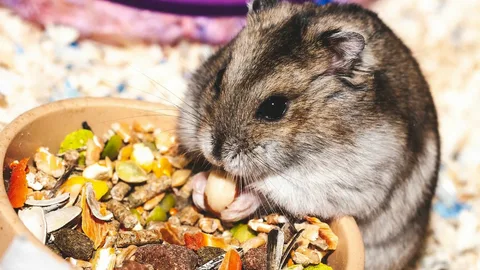

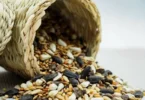
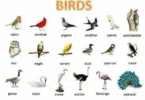
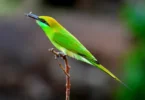

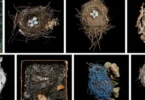
Leave a Comment